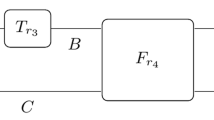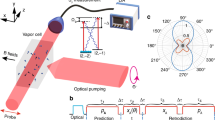Abstract
IT is certainly an interesting, almost a sensational, thing that the discoverer of the quantum, which has done more than any other new theory in science to shake the old determmist philosophy, should be himself one of the stoutest to restate it in more guarded and acceptable terms. That is the gist of this small volume of essays by Max Planck, very carefully and clearly translated by Mr. W. H. Johnston. It is well worth reading for the calm and good judgment with which one of the acknowledged masters of modern science reviews both this determinist question and the other great cognate problems in contemporary scientific philosophy.
The Philosophy of Physics
By Max Planck. Translated by W. H. Johnston. Pp. 118. (London: George Allen and Unwin, Ltd., 1936.) 4s. 6d. net.
This is a preview of subscription content, access via your institution
Access options
Subscribe to this journal
Receive 51 print issues and online access
$199.00 per year
only $3.90 per issue
Buy this article
- Purchase on Springer Link
- Instant access to full article PDF
Prices may be subject to local taxes which are calculated during checkout
Similar content being viewed by others
Rights and permissions
About this article
Cite this article
MARVIN, F. Planck's Philosophy of Physics. Nature 137, 441–442 (1936). https://doi.org/10.1038/137441a0
Issue Date:
DOI: https://doi.org/10.1038/137441a0
Comments
By submitting a comment you agree to abide by our Terms and Community Guidelines. If you find something abusive or that does not comply with our terms or guidelines please flag it as inappropriate.



